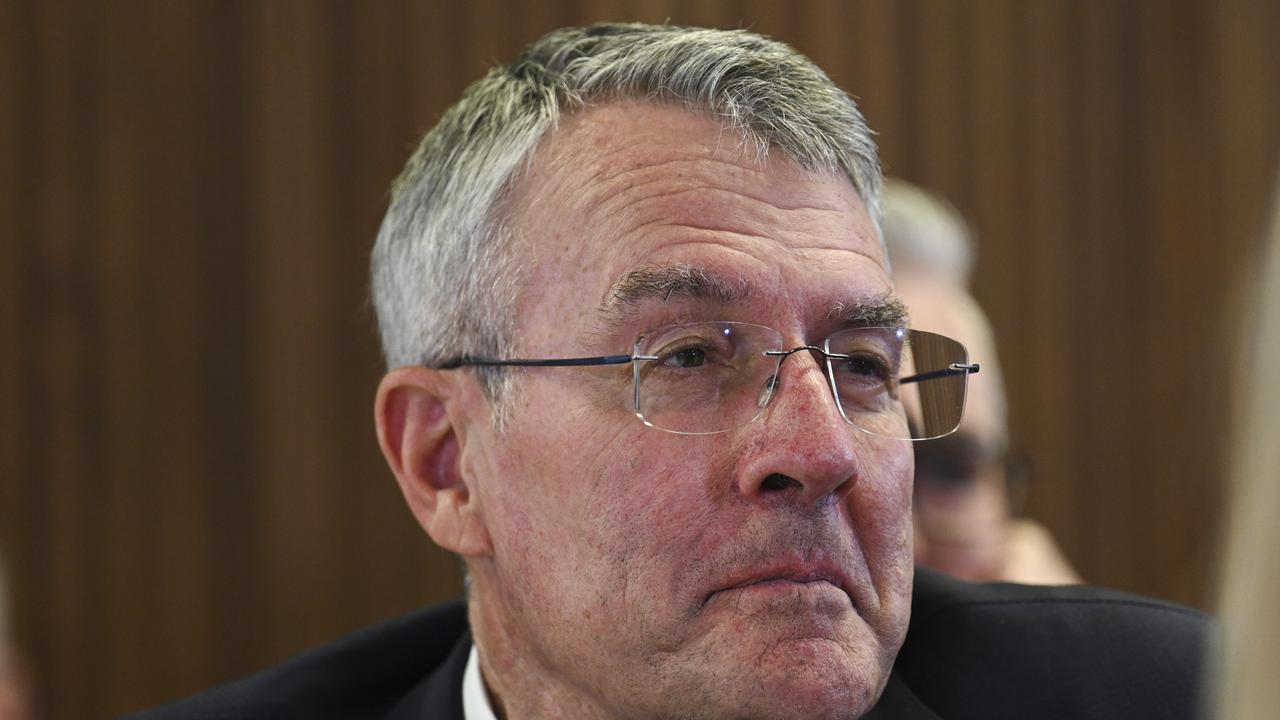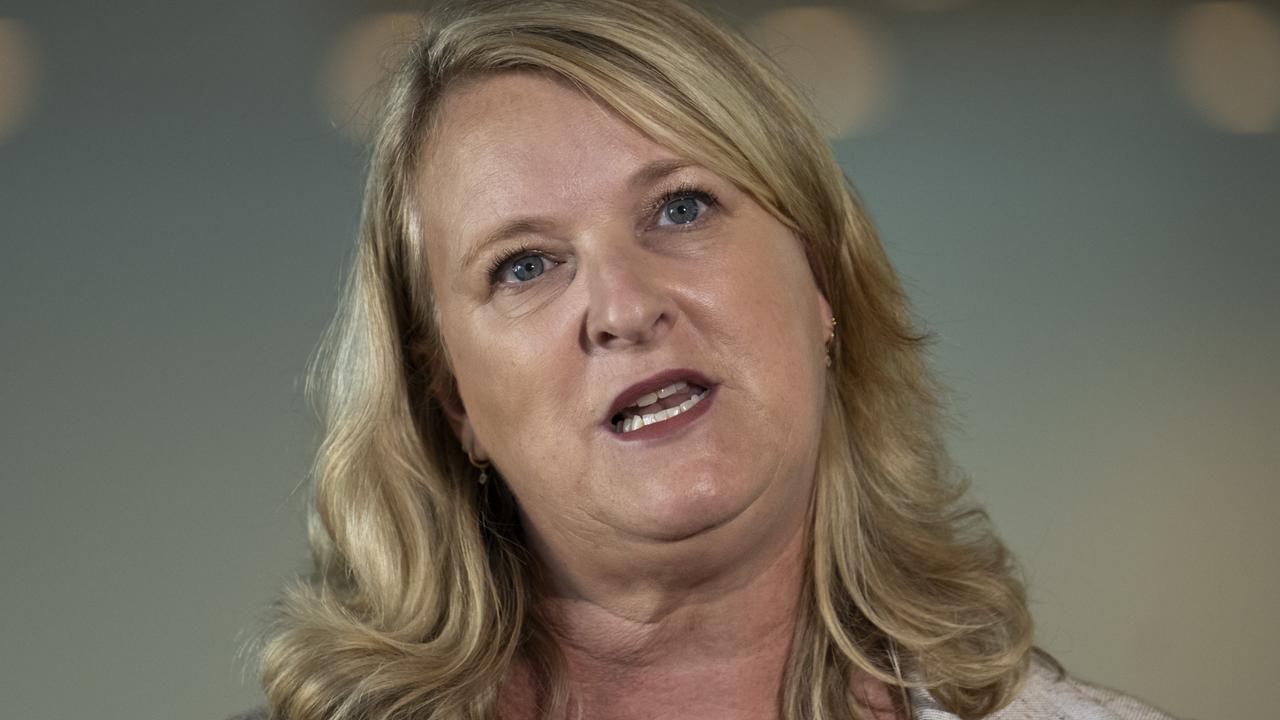Police ministers move ahead on plan to tackle domestic violence
The nation’s police ministers will listen to experts and people with lived experience as they tackle the increasing scourge of domestic violence.
The country’s police ministers have vowed to listen to people with lived experience of domestic violence, as governments across the country seek a better path forward in combating the scourge.
In a meeting, chaired by Attorney-General Mark Dreyfus in Canberra on Friday, the ministers “noted” national cabinet’s direction they work alongside the country’s attorneys-general to come up with options for improving police responses to high risk and serial perpetrators of gender-based violence, including considering the use of “focused deterrence and fixated threat strategies”.
The police ministers council “agreed to task officials to consider expert stakeholder views, including those with lived experience of violence, in developing the joint program to progress this work”.
Mr Dreyfus also referenced comments Anthony Albanese had made ahead of the meeting about bail, and other measures that prioritise safety.

Ahead of the meeting, the Prime Minister had indicated the ministers would discuss bail laws and greater data sharing between states about high risk or serial perpetrators.
The technicalities of those issues overwhelmingly fall under the purview of police ministers.
The meeting that was set up prior to the worrying rise in gendered violence and two Sydney stabbings, and included discussions and action on the national firearms register and closing the gap.
It had not been expected any major announcements would be made.
On Friday morning, Mr Albanese said co-operation between the states was key in tackling what he described as a national crisis.
“States and territories will all come together at the Attorney-General meeting to talk about the law, justice system, bail laws, those matters that are the primary responsibility of states and territories,” the Prime Minister told Channel 7.
“In addition to that, the NSW cabinet is meeting today as well to talk about measures that are within NSW that they can take control of, issues like community services and housing.”

It comes just days after South Australia passed tough laws targeting repeat offenders with strict stay-at-home orders and requiring those who break intervention orders and are bailed to wear an ankle monitor.
At least 28 women have died this year from gendered violence.
Mr Albanese held an emergency meeting of national cabinet this week, announcing a Morrison-era trial program to financially assist women leaving violent relations will be made permanent.
In total, $925m over five years will be set aside to rebadge the trial Escaping Violence Payment to the Leaving Violence Payment, which will roll out next year at the end of the trial.
Mr Albanese described it as “two steps forward”.
“What we’ve done is to beef up the program to make sure that there’s more, more support, not just the financial payment, but that those support services kick in as well,” he said.

The program, which seeks to help people with the financial costs of escaping a violent intimate relationship, offers eligible people up to $1500 in cash and $3500 in vouchers.
The one-off payment of $5000 was first introduced under the former Morrison government in 2021 but was revised in response to heightened concerns over its strict eligibility requirements, including the exclusion of people who hold temporary visas.
To be eligible, a person must be a victim survivor and have experienced a change in living arrangement as a result of the intimate partner violence in the past 12 weeks.
According to a report from peak organisation Domestic Violence NSW, only 15 per cent of frontline services reported having their clients receive the full $5000 payment in 2022.
Data obtained this year by the Guardian showed that more than half of more than 50,000 Australians had their applications rejected between July and September 2023.
Independent MP Kylea Tink said the government should stop “throwing money at a broken system”.
“Where we are at the moment, as a society and culture, at a tipping point, where we need to tip this issue on its head,” she told ABC News.
“We have to stop focusing on the victims running, the women running with their children and start focusing on the root cause of gender-based violence in this country and on holding perpetrators to account more clearly so we don’t have men doing things like we have seen in the past week, breaking bail and (allegedly) killing innocent women.”



